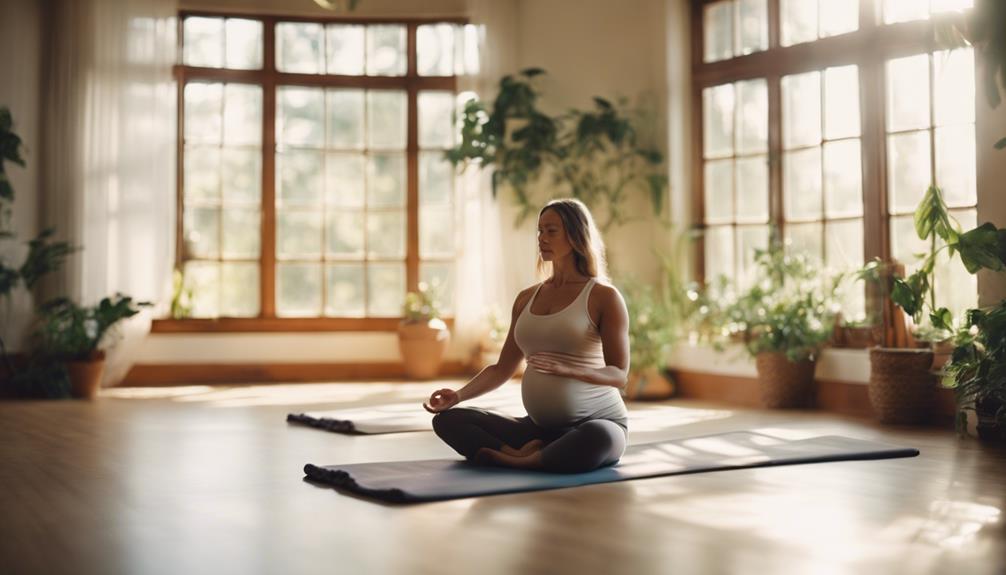Is Yoga Good For Anxiety

Anxiety is a common mental health issue that affects millions of people worldwide. As more individuals seek holistic and alternative treatments, the question arises: is yoga good for anxiety? This blog post aims to provide a comprehensive overview of how yoga can positively impact anxiety levels, exploring various aspects of this ancient practice and its relevance in today’s fast-paced world.
The Connection Between Yoga and Mental Health
Yoga is an ancient practice that combines physical postures, breath control, meditation, and ethical principles. Its roots trace back thousands of years in India, where it was primarily developed as a spiritual practice. However, modern research has increasingly highlighted the connection between yoga and mental health, particularly its effects on anxiety. Various studies have shown that regular yoga practice can reduce symptoms of anxiety and promote overall emotional well-being. This is largely due to the incorporation of mindfulness and relaxation techniques, which help individuals manage stress more effectively.
How Yoga Reduces Anxiety Symptoms
The question “is yoga good for anxiety?” can be answered by examining the physiological and psychological benefits it offers. Yoga encourages relaxation, which counteracts the body’s stress response. When you practice yoga, your body releases neurotransmitters like serotonin and dopamine, which help improve mood and reduce feelings of anxiety. Additionally, yoga promotes deep, mindful breathing that activates the parasympathetic nervous system, leading to decreased heart rate and blood pressure. This physiological response can help alleviate anxiety symptoms, making it easier for individuals to cope with daily stressors.
Various Yoga Styles for Anxiety Relief
Not all yoga styles are created equal, especially when it comes to managing anxiety. Some styles are more effective for relaxation and mental clarity than others. For instance, Hatha and Yin yoga are known for their gentle postures and long-held poses, which promote relaxation and mindfulness. On the other hand, more vigorous styles like Vinyasa or Ashtanga may be less effective for anxiety relief, as they often focus on physical exertion rather than relaxation. Understanding which yoga style works best for you is crucial in determining how effective yoga can be in managing anxiety.
Related Posts:
The Role of Mindfulness and Meditation in Yoga
Mindfulness is a key component of yoga that significantly contributes to its efficacy in reducing anxiety. Practicing mindfulness involves being present in the moment and observing thoughts and feelings without judgment. This practice can help individuals detach from their anxious thoughts and create a sense of inner calm. Many yoga classes incorporate meditation techniques, further enhancing the overall impact on mental health. By focusing on the breath and being present, practitioners can cultivate a sense of peace and clarity that can extend beyond the yoga mat.
Scientific Studies Supporting Yoga for Anxiety
Numerous scientific studies have explored the relationship between yoga and anxiety relief. A meta-analysis published in the Journal of Clinical Psychiatry found that yoga significantly reduced anxiety symptoms among participants. Another study in the Journal of Alternative and Complementary Medicine reported that participants who practiced yoga regularly experienced lower levels of anxiety and improved overall mental health compared to those who did not practice yoga. These findings support the idea that yoga can indeed be a beneficial tool for managing anxiety.
Creating a Yoga Routine for Anxiety Management
If you’re wondering how to incorporate yoga into your life to combat anxiety, consider starting with a basic routine. Aim for at least 20-30 minutes of yoga practice a few times a week. You can begin with simple poses such as Child’s Pose, Cat-Cow, and Forward Fold, which promote relaxation. Additionally, integrating breathwork techniques, such as Pranayama (breath control), can further enhance your practice. As you grow more comfortable, consider exploring different styles and attending classes to deepen your understanding and experience.
Combining Yoga with Other Anxiety Management Techniques
While yoga is an effective tool for managing anxiety, it’s often most effective when combined with other strategies. Techniques such as cognitive-behavioral therapy (CBT), mindfulness practices, and medication (if necessary) can complement your yoga practice. This holistic approach ensures that you’re addressing anxiety from multiple angles, leading to more comprehensive improvements in mental health. Always consult with a healthcare professional before making significant changes to your anxiety management plan.
The Importance of Consistency in Yoga Practice
To experience the full benefits of yoga for anxiety, consistency is key. Just like any other form of exercise, the effects of yoga are cumulative. Practicing regularly can lead to long-term improvements in not just anxiety levels but also overall well-being. Establishing a routine, whether through classes or at-home practices, can help reinforce the habit. Additionally, keeping a journal to track your feelings before and after yoga sessions can provide insight into your progress and motivate you to continue.
Conclusion
In conclusion, the question “is yoga good for anxiety?” is answered with a resounding yes. The combination of physical movement, mindful breathing, and meditation can significantly reduce anxiety symptoms and promote mental wellness. By exploring various styles, incorporating mindfulness practices, and being consistent in your yoga routine, you can harness the power of yoga to combat anxiety. Always remember to consult with professionals and combine yoga with other techniques for the best possible outcome. Embrace the journey, and allow yoga to lead you toward a more peaceful and anxiety-free life.Yoga For Weight LossDoes Hot Yoga Help You Lose WeightIs Yoga Indian